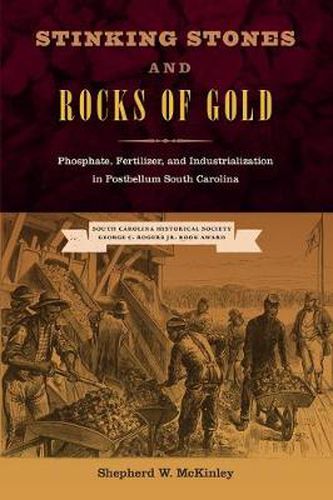Readings Newsletter
Become a Readings Member to make your shopping experience even easier.
Sign in or sign up for free!
You’re not far away from qualifying for FREE standard shipping within Australia
You’ve qualified for FREE standard shipping within Australia
The cart is loading…






This title is printed to order. This book may have been self-published. If so, we cannot guarantee the quality of the content. In the main most books will have gone through the editing process however some may not. We therefore suggest that you be aware of this before ordering this book. If in doubt check either the author or publisher’s details as we are unable to accept any returns unless they are faulty. Please contact us if you have any questions.
A finely layered and important study that fills in gaps in the industrial history of the New South and especially low-country South Carolina.–Sidney Bland, author of Preserving Charleston’s Past, Shaping Its Future: The Life and Times of Susan Pringle Frost Skillfully blurs the old, comfortable line between Old and New South economies and paints a nuanced picture of the new labor relations in the post-slavery era.–Charles Holden, author of In the Great Maelstrom In the first book ever written about the impact of phosphate mining on the South Carolina plantation economy, Shepherd McKinley explains how the convergence of the phosphate and fertilizer industries carried long-term impacts for America and the South.Fueling the rapid growth of lowcountry fertilizer companies, phosphate mining provided elite plantation owners a way to stem losses from emancipation. At the same time, mining created an autonomous alternative to sharecropping, enabling freed people to extract housing and labor concessions.Stinking Stones and Rocks of Gold develops an overarching view of what can be considered one of many key factors in the birth of southern industry. This top-down, bottom-up history (business, labor, social, and economic) analyzes an alternative path for all peoples in the post-emancipation South.
$9.00 standard shipping within Australia
FREE standard shipping within Australia for orders over $100.00
Express & International shipping calculated at checkout
This title is printed to order. This book may have been self-published. If so, we cannot guarantee the quality of the content. In the main most books will have gone through the editing process however some may not. We therefore suggest that you be aware of this before ordering this book. If in doubt check either the author or publisher’s details as we are unable to accept any returns unless they are faulty. Please contact us if you have any questions.
A finely layered and important study that fills in gaps in the industrial history of the New South and especially low-country South Carolina.–Sidney Bland, author of Preserving Charleston’s Past, Shaping Its Future: The Life and Times of Susan Pringle Frost Skillfully blurs the old, comfortable line between Old and New South economies and paints a nuanced picture of the new labor relations in the post-slavery era.–Charles Holden, author of In the Great Maelstrom In the first book ever written about the impact of phosphate mining on the South Carolina plantation economy, Shepherd McKinley explains how the convergence of the phosphate and fertilizer industries carried long-term impacts for America and the South.Fueling the rapid growth of lowcountry fertilizer companies, phosphate mining provided elite plantation owners a way to stem losses from emancipation. At the same time, mining created an autonomous alternative to sharecropping, enabling freed people to extract housing and labor concessions.Stinking Stones and Rocks of Gold develops an overarching view of what can be considered one of many key factors in the birth of southern industry. This top-down, bottom-up history (business, labor, social, and economic) analyzes an alternative path for all peoples in the post-emancipation South.